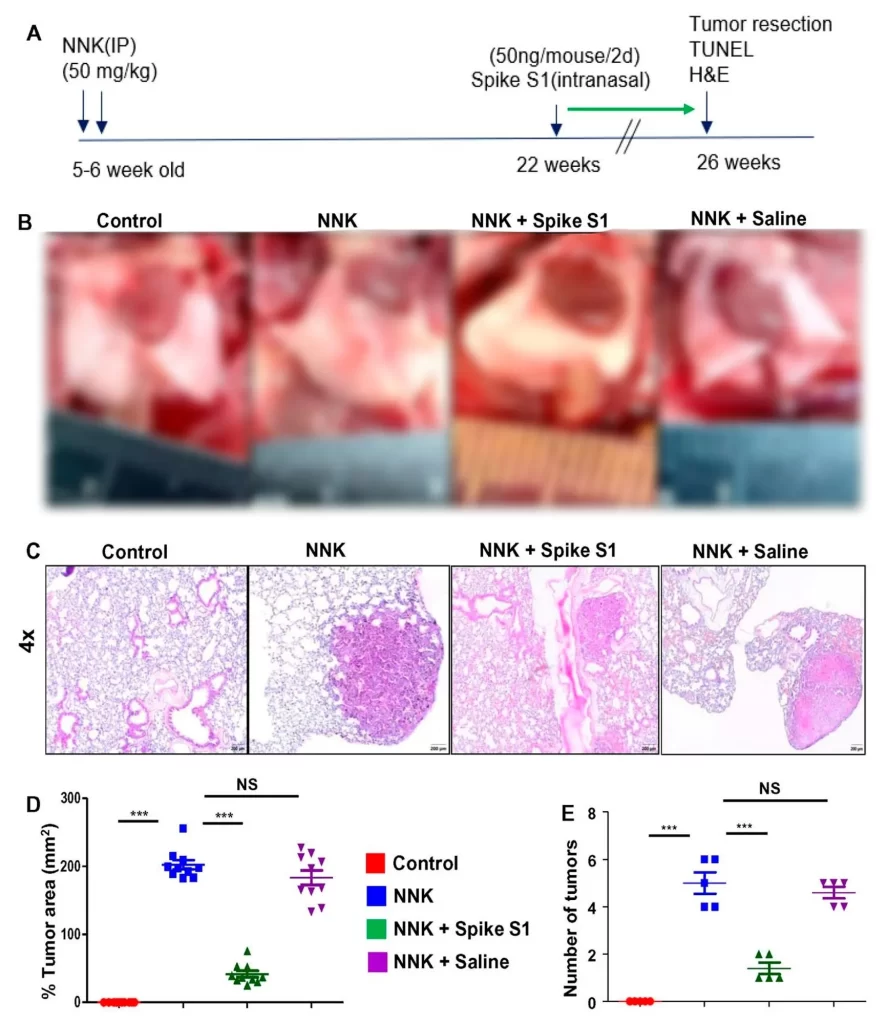COVID-19 Could Be Used in Lung Cancer Treatment

It turned out that the COVID-19 virus, which infects hundreds of millions of people and kills millions, reduces lung tumors in the research conducted by RUSH researchers.
In laboratory studies led by researchers at RUSH University Medical Center, who recently published their findings in the journal Cancers, the notorious spike protein of the virus SARS-CoV-2, the virus that causes COVID-19, caused lung cancer cells to die. The discovery raises the possibility that the epidemic that has plagued the world for three years may provide a cure for lung cancer and perhaps other cancers as well.
The coronavirus infects human cells by binding to a molecule known as angiotensin-converting enzyme 2, thanks to its spike protein known as S1. This molecule, called ACE2 for short, is a useful enzyme that plays a key role in the regulation of blood pressure and other cellular processes.
ACE2 level is also increased in people with cancer, including lung cancer, and research has found that changing ACE2 levels can help control lung cancer growth. The involvement of ACE2 in both cancer progression and coronavirus infection prompted RUSH researchers to investigate the spike protein against the disease.
“It’s always important to find mechanisms that induce cancer cell death and stop cancer progression,” said Floyd A. Davis, professor of neurology at the RUSH College of Medicine and lead investigator of this study Kalipada Pahan. said.

Lung Cancer is More Deadly than Other Types of Cancer
On the other hand, despite the developments in treatment processes, lung cancer is far ahead of cancer deaths worldwide. According to statistics, more than 130,000 people die from it every year in the United States alone.
Using a commercially available cloned version of the spike protein, Pahan and colleagues first tested the effect of the protein on the most treatment-resistant and deadliest lung cancer (NSCLC – Non-Small Cell Lung Cancer). The test found that spike therapy stopped or slowed the growth of cancer cells.
Great Success in Mouse Experiments
The researchers then examined the results by administering spike protein to mice with lung cancer. One group of mice was given spike protein in a mixture of saline solution sprayed into the nostrils every other day, while a control group was given only normal saline solution.
After four weeks of spike protein treatment, the mice were euthanized and autopsied. The researchers found higher levels of tumor cell death compared to the control group, with reduced number and size of tumors in mice receiving the spike protein.
“If these results are replicated in lung cancer patients, it will reveal an encouraging avenue for the treatment of this devastating disease,” Pahan said. He added, “In the absence of other treatment to stop the progression, the intranasal spike S1 protein can be used for late-stage lung cancer.”
Lung cancer stands out as the main cause of cancer-related deaths in the world. The five-year survival rate of this cancer is also very low compared to other types of cancer. Meanwhile, RUSH University is seeking partners to study the use of spike protein in clinical trials of human patients with lung cancer.






